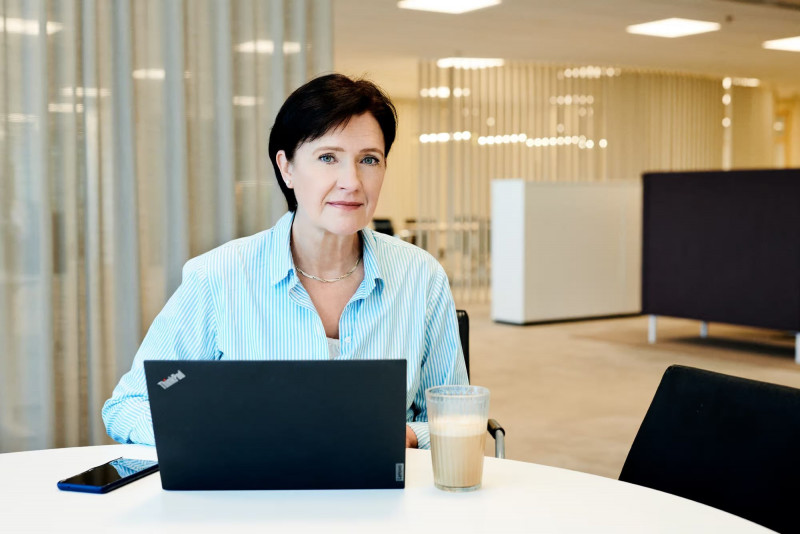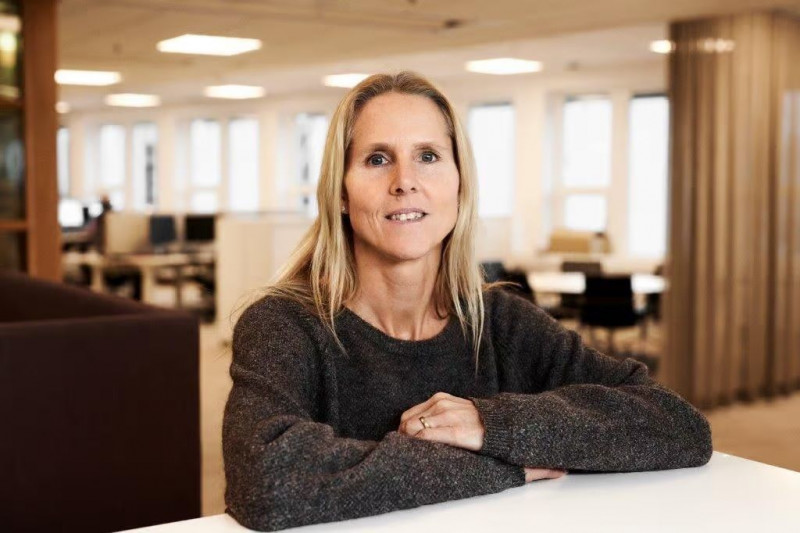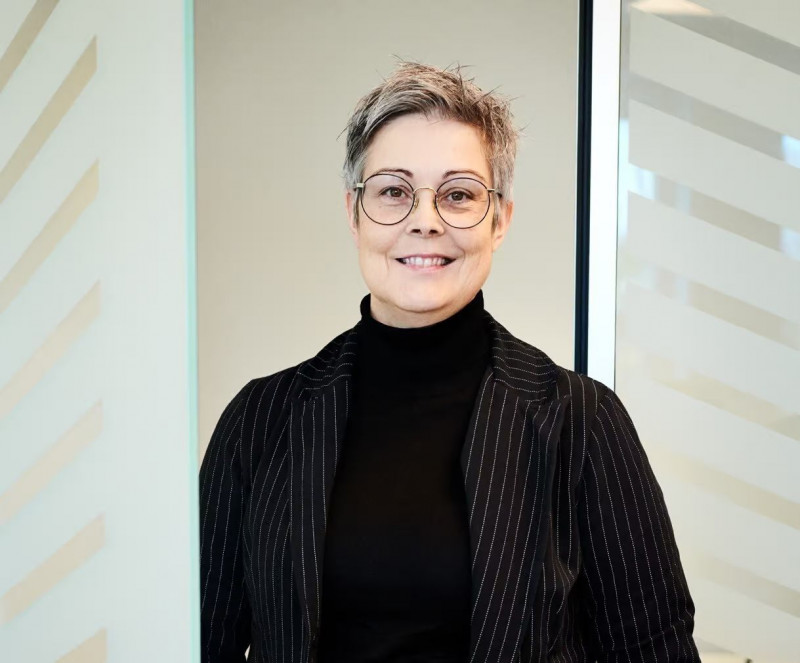-
Indonesia
Copyright © 2025 Powered by BCI Media Group Pty Ltd
Confirm Submission
Are you sure want to adding all Products to your Library?
Contact Detail

This year’s International Women’s Day theme is “DigitALL: Innovation and technology for gender equality”. To raise awareness and increase recognition of this issue, we decided to speak with four of the women working in various STEM (science, technology, engineering, and math) roles within Aritco to hear their experiences working in traditionally male-dominated fields and their advice for women looking to follow their paths. They also shared their thoughts on what companies can do to encourage more equity for women within the IT and technology space.

Karin joined Aritco almost ten years ago, brought on as Development Manager to oversee the creation of the world’s first true home lift. To date, this is still one of Aritco’s most pivotal projects.
“I was given quite a free hand to build the appropriate conditions and recruit the ultimate team,” Karin recalls. “After 9 months of preparations, which included planning, building labs, updating development tools, finalizing ongoing projects, and enrolling new staff, we got started. Two and a half years later – and lots and lots of work – the Aritco home lift was launched.”
Over the years, she has seen an increase in women in her field. But while there is more representation in middle management, she feels there is still a lack of women at the top. This could be due in part to the different ways in which ambition presents in women and men (generally speaking).
“Companies shouldn’t confuse a woman’s lack of interest in building hierarchies and competing with a lack of competence or commitment. They should look at capabilities, experience, and knowledge,” Karin says.
Equally important in creating an inclusive work environment is ensuring there is a healthy proportion of women working in the organization, at least 15% she thinks, ideally much more. And in order to promote an inclusive work culture, regular check-ins should be made with female employees to identify any inappropriate behavior and curb potential vulnerabilities.
However, the challenge of increasing the proportion of women in STEM fields begins even before the recruitment process.
“They need to see female role models. And schools need to communicate with young women what these technical jobs actually entail so they can have a better understanding of their options.”
She had this advice for young women looking to start a career in a technical field, “You’re needed, and what you bring to the table is very important. Don’t be intimidated, just believe in yourself. Make room for yourself, speak up. Don’t be shy!”

With a Master’s Degree in Mathematics, Sara fell into the world of IT by accident. After trying a couple of jobs, she got the opportunity to work as a Microsoft Dynamics developer and consultant. She thoroughly enjoyed her work, and when the Italian native moved to Sweden a couple of years ago, she was happy to find a position at Aritco where she could put her specialized experience to work.
Despite the fact that, over the years, the vast majority of her colleagues have been men, she has never felt that her career opportunities were limited by her gender.
“But I do think that sometimes being part of a minority, you might feel – on a subconscious level – pressure to demonstrate your capabilities and your skills. Especially when you meet new people or face new situations,” Sara adds. “There’s a kind of need to prove that you weren’t just hired because you’re a woman.”
Sara thinks the root of a lot of these problems is unconscious biases which are best dealt with by having an open and honest dialogue. “It’s important for companies to create this kind of discussion, maybe even with the help of experts. This way we can all be aware of these biases, know how to recognize and avoid them,” she says.
She also feels that giving women access to a network of other women in their field or industry would be extremely beneficial and echoes Karin’s feelings on the need for a larger proportion of women in STEM roles, especially leadership positions.
“If we start working more in these areas that have always been populated by men, it will be easier in the future to just enjoy where you are and do your work without worrying about all those extra concerns,” she says.
Her advice for women wanting to pursue a technical career: “Feel confident applying to these positions if you are interested in the field, without thinking about the fact that this has always been a male-dominated field. Don’t question your fitness for the field because there are no differences in skills or capabilities between men and women. And reach out to women already in these positions for information about the work or feedback on potential difficulties or challenges you might face being a woman.”

Like Karin, Petra has been working at Aritco for over a decade. As the sole Product Manager, she oversees Aritco’s entire portfolio of lifts. For 25 years, she’s held a number of technical positions at companies across Sweden, Switzerland, and Germany. She’s noticed a definite increase in the number of women in STEM fields but says it varies widely across industries.
“When I worked in telecommunications, there were mainly men but also some women. When I worked with gas turbines, it was basically only men,” Petra recalls. “And if you look at the lift business, I think at Aritco, we have a lot of women.”
She’s also noticed that women seem to be entering into some of the newer fields such as the Internet of Things (IoT) and IT, but that growth is slower in more traditional fields like mechanical and electrical engineering.
Despite often being one of few (if not the only) women on her team, she has never felt at a disadvantage. “Of course, maybe in the beginning, I needed to prove a little bit that I could do this. But now I feel like it’s an advantage to be a woman. I think there’s a lot you can contribute as a woman. In the team do you think a little bit differently? Maybe. So you can create a different kind of dynamic. I don’t think it’s good to have only women or only men. It’s best to have a mix,” she explains.
Petra also feels that the best way to encourage more young women to enter STEM is by connecting them with women already working in the field. “If I look around at Aritco, I see women in different positions. I think it’s comforting for women to see that. We even have women like Karin leading in engineering positions.”
She also thinks that it’s important to get more women into STEM education programs in order to ensure a strong pool of candidates. “You can’t hire women if there are no women. To encourage women to study engineering, it’s useful to help them understand all that you can do as an engineer, the different jobs and industries that you can work in.”
Her advice to other women considering a STEM career: “Trust yourself and do what is interesting to you. If you like something then you will be able to learn it and be successful. You are no different from the guys. You are as good as them.”

Liselott joined Artico less than a year ago, tasked with overseeing the transition from local to global technical support department. Her team is spread across the map in Sweden, UK, Germany, and Dubai. It’s a big but exciting challenge, which she is more than qualified to take on thanks to an extensive career managing teams of up to 45 technicians.
She always thought that a career as a technician sounded fun, and wasn’t deterred by the fact it was a male-dominated industry. “I don’t back down from a fight. I like working in a male industry, even though at times it has been hard,” Liselott explains.
She has experienced adversity in the form of male colleagues taking credit for her ideas, patronization, and at times a worrying silence culture where inappropriate comments are met with silent acquiescence.
But she says that she has experienced more good than bad, especially in her current position. “I really like it at Artico. I like the attitude, the vision, and the mission. I feel like they really see all the employees, and they see the women and the work we do. And we have an open dialogue where we can talk about these issues.”
She credits the “Me Too” movement with emboldening more women to share their stories.
“I think we need to speak up more and stand up for ourselves. And companies must back up their women.” She adds, “And it would be nice to connect with other women to be able to talk about our struggles, like a mentorship.”
In addition to creating an open and inclusive work environment, Liselott points to issues during the recruitment process that might be discouraging female candidates. “When I was younger, I’d think, ‘Oh, I must be able to do everything on the job posting. I need to do this. And this. And this.’ A guy is less likely to think that, so we need to change our job ads to address this difference,” she says.
Liselott’s advice for women looking to enter into STEM careers: “Go for it. Nothing to think about, just go for it. You will manage it. You are a strong, beautiful woman. You can manage it. Go for it!”



